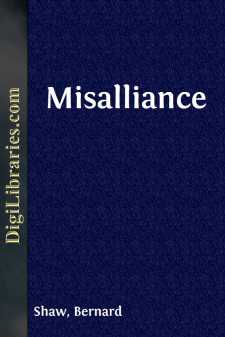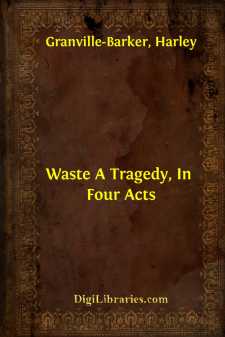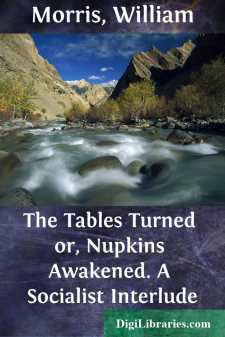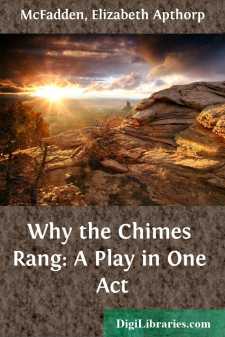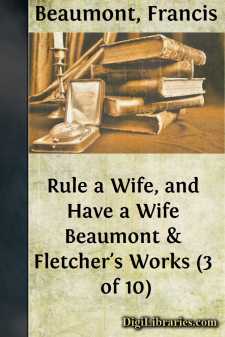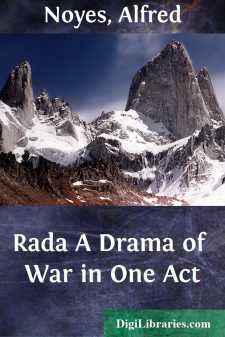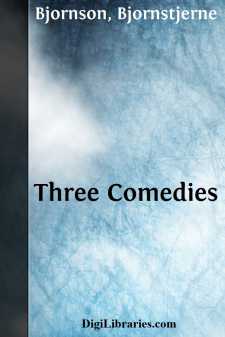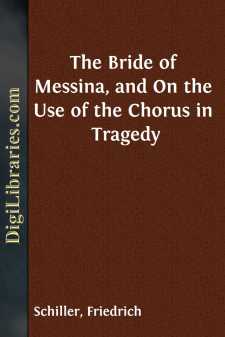Drama
General Books
Sort by:
by:
Bernard Shaw
MISALLIANCE Johnny Tarleton, an ordinary young business man of thirty or less, istaking his weekly Friday to Tuesday in the house of his father, JohnTarleton, who has made a great deal of money out of Tarleton'sUnderwear. The house is in Surrey, on the slope of Hindhead; andJohnny, reclining, novel in hand, in a swinging chair with a littleawning above it, is enshrined in a spacious half...
more...
WASTE At Shapters, George Farrant's house in Hertfordshire. Ten o'clock on a Sunday evening in summer. Facing you at her piano by the window, from which she is protected by a little screen, sits Mrs. Farrant; a woman of the interesting age, clear-eyed and all her face serene, except for a little pucker of the brows which shows a puzzled mind upon some important matters. To become almost an...
more...
by:
Jethro Bithell
THE FIRST ACT One of the city gates of Pekin. Over the gate, planted on iron poles, a row of severed heads with shaven crowns and Turkish tufts. TIME: Shortly after sunrise. When the curtain rises the gate is closed. From within the roll of drums and military commands. BRIGELLA. (Behind the scenes.) Halt! Present arms! TRUFFALDINO. (Behind the scenes.) Halt! Slope swords! Open the gate! At ease! Quick...
more...
by:
William Morris
PART I. SCENE.—A Court of Justice. Usher, Clerk of the Court, Mr. Hungary, Q.C., and others. Mr. La-di-da, the prisoner, not in the dock, but seated in a chair before it. [Enter Mr. Justice Nupkins. Usher. Silence!—silence! Mr. Justice Nupkins. Prisoner at the bar, you have been found guilty by a jury, after a very long and careful consideration of your remarkable and strange case, of a...
more...
Why the Chimes Rang. The scene is laid in a peasant's hut on the edge of a forest near a cathedral town. It is a dark low-raftered room lit only by the glowing wood fire in the great fireplace in the wall to the right, and by a faint moonlight that steals in through the little window high in the left wall. This window commands a view of the cathedral and of the road leading down into the town. The...
more...
by:
Francis Beaumont
Actus PrimusScena PrimaEnter Juan de Castro, and Michael Perez. Michael PerezAre your Companies full, Colonel? Juan de CastroNo, not yet, Sir:Nor will not be this month yet, as I reckon;How rises your Command? Michael PerezWe pick up still, and as our monies hold out,We have men come, about that time I thinkWe shall be full too, many young Gallants go. Juan de CastroAnd unexperienced,The Wars are dainty...
more...
PEOPLE IN THE PLAY ALICE GARDNER: Daughter of James K. Gardner, President of the L.I. & W. Railroad "UNCLE" JOSEPH HATCH: Alias "Gentleman Joe" "BRICK" MEAKIN: Alias "Reddy, the Kid" HARRY HAYES: Alias "Grand Stand" Harry CAPTAIN LUCAS: Chief of Police Policemen, Brakemen, Engineers Scene—The dining room in the country house of James K. Gardner on Long...
more...
by:
Alfred Noyes
RADA SCENE—_A guest-chamber, the typical living-room of a prosperous village doctor in the Balkans. On the left, a small window and an entrance door. On the right, a door leading into a bedroom. At the back, an open fire of logs is burning brightly. Over the fireplace is the eikonostasis, with three richly coloured and gilded eikons, the central one of the Madonna. The light, which is never allowed...
more...
ACT I (SCENE.—A handsomely furnished, carpeted room, with a door at the back leading to a lobby. The FATHER is sitting on a couch on the left-hand side, in the foreground, reading a newspaper. Other papers are lying on a small table in front of him. AXEL is on another couch drawn up in a similar position on the right-hand side. A newspaper, which he is not reading, is lying on his knee. The MOTHER is...
more...
SCENE I. A spacious hall, supported on columns, with entrances on both sides;at the back of the stage a large folding-door leading to a chapel. DONNA ISABELLA in mourning; the ELDERS OF MESSINA. ISABELLA.Forth from my silent chamber's deep recesses,Gray Fathers of the State, unwillinglyI come; and, shrinking from your gaze, upliftThe veil that shades my widowed brows: the lightAnd glory of my days...
more...


